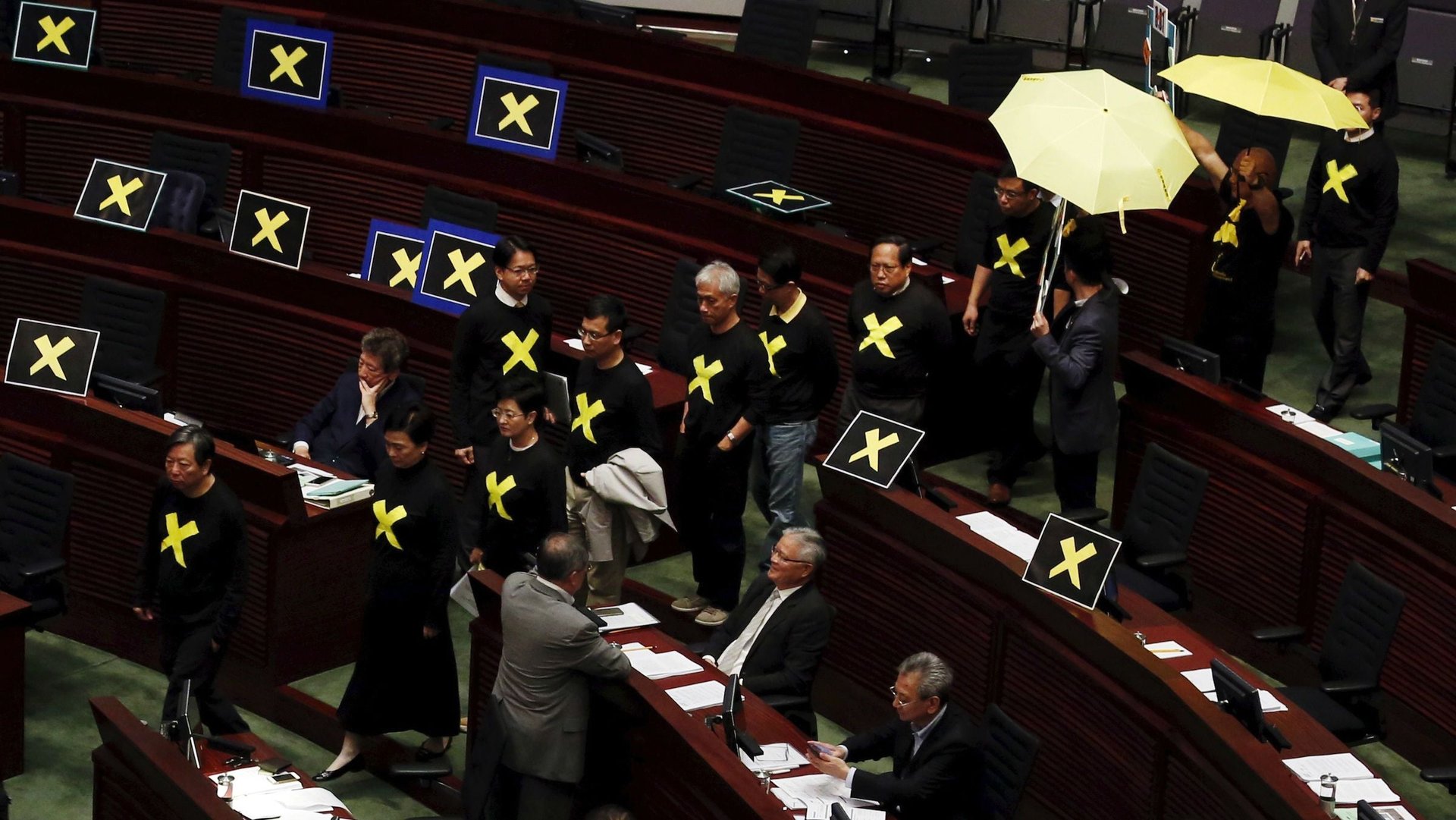Hong Kong leaders have set the stage for another wave of pro-democracy protests
This article has been corrected.


This article has been corrected.
After reviewing of thousands of submissions from the public, academics, and NGOs following the pro-democracy protests that overwhelmed Hong Kong last year, the city’s leaders unveiled a new election plan today that almost exactly mirrors the controversial Beijing proposal that sparked the protests.
The plan is expected to be rejected by the city’s pro-universal suffrage lawmakers. Because it makes almost no concessions to the public sentiment that brought tens of thousands of citizens to the streets last year, it is also expected to kick off another round of public protests.
Chief secretary Carrie Lam told Hong Kong’s Legislative Council Wednesday that under the new plan:
- Hong Kong’s nominating committee—a 1,200-member group responsible for choosing candidates for the city’s top government job, chief executive—would remain unchanged.
- Candidates for chief executive would need to be approved by one half of the committee before being eligible to enter elections, as before.
- Two to three candidates will be put forward by the committee, nominated through secret ballot, to be voted on by the public of over 5 million eligible voters.
- In a minor concession, candidates for chief executive could be approved by just one-tenth of the nominating committee in “stage one” of the nomination process. They would still need to get approval of at least half to head to public elections.
The blueprint is very close to the framework introduced last August by China’s National People’s Congress, which set Hong Kong’s months-long protests in motion. Two-thirds of the city’s Legislative Council needs to approve the plan during a vote scheduled for June for it to be adopted. If it does not, Hong Kong’s chief executive will be picked the same way that it has in the past, by a committee of hundreds who mostly represent special-interest groups and businesses.
Both Leung and Lam stressed that if the reform proposal were vetoed it could be years before the city has another chance at universal suffrage. “It must happen in 2017,” Lam said, using the government’s latest catchphrase to support the plan.
Just four of the city’s pro-universal-suffrage lawmakers, known as pan-democrats, need to vote for the process for it to pass—but they all pledged in March to vote against it. As the proposal was introduced today, all of these lawmakers except one displayed a yellow “x” signaling they would reject it:
During Lam’s speech, she was heckled by pan-democrats. After she finished, they walked out, with the exception of one, Ronny Tong.
Protests are now inevitable, some say, setting the stage for a long, hot summer of political upheaval in Hong Kong.
Pan-democrats are outnumbered in Hong Kong’s legislative branch, which has 70 total seats, although they hold 27 of the 40 seats that are democratically elected. The remaining 30 seats are elected by “functional constituencies” made up of business people and industry representatives.
Hong Kong chief executive C.Y. Leung said in an interview last year that the city has too many poor people to have direct elections, and allowing them all to vote would result in “that kind of politics and policies.” Lam’s comments Wednesday echoed this view of a Hong Kong electorate that was not sophisticated enough for a truly free choice:
Hong Kong University will conduct telephone polls to gauge Hongkongers’ reactions after today’s speech.
This article originally stated that Hong Kong University’s public opinion poll would be conducted online, not by telephone.